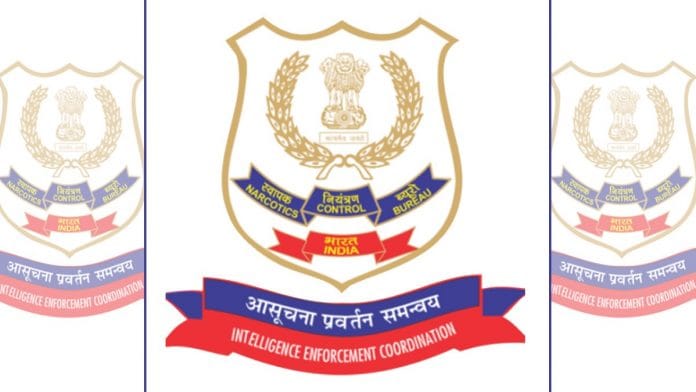New Delhi: The Narcotics Control Bureau (NCB) has arrested two Sri Lankan nationals for their alleged role in drug trafficking syndicate based out of Pakistan and Sri Lanka and has seized 100 kg heroin worth Rs 1,000 crore in the international market — the highest ever.
The two men — M.M.M. Nawas and Mohamed Afnas, who were arrested from Chennai Thursday — allegedly played a key role in the drug syndicate that also has “tentacles in Afghanistan, Iran, Maldives and Australia”, K.P.S. Malhotra, Deputy Director (Operations), NCB, told ThePrint.
The men even had Interpol Red Corner Notice issued against them by the Sri Lankan government.
According to Malhotra, both Nawas and Afnas were controlling the mid-sea pick-up and delivery of narcotic drugs from Pakistani and Iranian vessels in the Indian waters.
The largest opium cultivation region in the world — the Golden Crescent, comprising Afghanistan, Iran and Pakistan — has two important transit points for processed heroin in Sri Lanka and Maldives.
Heroin from Afghanistan, Iran and Pakistan is loaded in fishing vessels for a mid-sea transfer into similar vessels for delivery in Sri Lanka, Maldives and even Mozambique. Once the drug reaches these destinations, it is then pushed into India as a separate consignment, said a source in the NCB.
In this case, the mid-sea transfer that usually happens in Sri Lanka or Maldives, happened in the Indian waters, said the source.
This nexus had first come to the NCB’s notice on 20 November 2020, when the agency carried out a joint operation with the Indian Coast Guard and detained a Sri Lankan fishing vessel named ‘Shenaya Duwa’ near the Tuticorin port.
Six persons, all Sri Lankan nationals, were arrested and 95.87 kg of heroin and 18.32 kg of methamphetamine were seized from their possession.
“After the arrest of the six persons who were working on a mid-sea pick-up in Indian waters, we started a probe to unearth this nexus and then identified these two men who have now been arrested,” Malhotra said. “The total arrests now stand at eight.”
Also read: Supreme Court grants bail to Kannada actress Ragini Dwivedi in drugs racket case
Drug money for terror funding
The NCB suspects there is a big network of foreign entities controlling this “lucrative trade”. Sources also said the proceeds of this money were being used to fund “terror activities”.
“It is an ISI and LTTE network. The proceeds of these syndicates are being put to fund terror activities. Our probe in the matter is on,” the source said.
According to Malhotra, intelligence by the NCB and Indian agencies indicates that Pakistani drug traffickers lodged in Sri Lankan prisons for drug offences control this trade. These people source and deliver large quantities of heroin from Golden Crescent to Sri Lankan and Maldivian entities, including cartels, companies.
“NCB has been actively involved in curbing large scale trafficking of drugs through sea and it has also been acting in tandem with international agencies like United Nations Office on Drugs and Crime, International Narcotics Control Board etc as well as other national drug law enforcement agencies like Australian Federal Police, DEA, Police Narcotics Bureau of Sri Lanka etc to thwart this syndicate,” he said.
The actionable intelligence, which was shared with other national drug law agencies, has also led to a separate seizure of 100 kg of heroin by Sri Lankan and Maldivian authorities, he added.
“With increased vigil that our border guarding forces keep in the northwestern borders of India, the traditional route of Afghani-Pakistani heroin is becoming tougher to breach,” Malhotra said. “This has also led to the increased use of sea routes by traffickers to traffic heroin into India.”
Also read: Neither ‘udta’ nor ‘padhta’ Punjab. Question is how India’s no. 1 state in 2003 fell to 13






